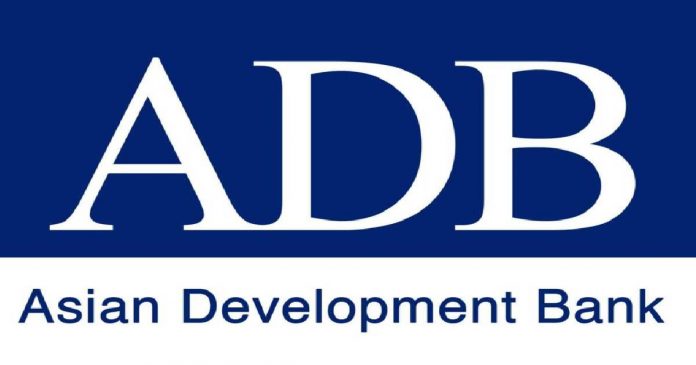ISLAMABAD, Pakistan spans plains, deserts, forests, and plateaus, ranging from the Arabian Sea to the mountains of the Karakoram and Hindu Kush.
The nation’s energy mix is dominated by thermal power, with almost 60% of electricity generated from oil-, gas- and coal-fired power plants. Fossil fuels are neither environmentally sustainable nor cheap: Generation costs were substantially skewed toward oil- and gas-fired power plants, which accounted for 46% of the total cost in fiscal year 2017.
However, the country has tremendous potential to expand electricity generating capacity by developing renewable energy resources.
A large percentage of Pakistan’s more than 200 million people lack reliable access to energy, which is key to socioeconomic development.
This severely impacts the economy and people’s livelihoods, according to a write up published by the Asian Development Bank (ADB).
“Pakistan has huge untapped hydropower potential,” says Joonho Hwang, director of the Energy Division for the Central and West Asia Department at the ADB. “The government is now focusing on developing several hydropower sites to ensure less dependence on imported fuel and more on indigenous clean energy resources. ADB is ready to support this crucial development.”
Hydropower has several advantages. It is a clean energy source renewed by rainfall and snowmelt. Hydropower plants can supply large amounts of electricity and are much cheaper than power plants using imported fuel.
Pakistan’s geography and geology are favorable – mountainous regions in the north have deep, rocky valleys that are ideal for hydropower generation. Despite the prospect of water scarcity, it’s also a water-rich country – globally only 33 countries have more renewable water.
However, Pakistan’s water infrastructure was historically built to cater to the needs of agriculture. Harnessing its huge hydro potential is a rather new development – only about 9,860 megawatts of capacity has been developed, out of a potential 60,000 megawatts. If Pakistan could harness all of its potential capacity, the country could overcome its energy shortage and at the same time reduce spending on imported fuel.
In November 2019, Pakistan’s Alternative Energy Development Board approved the Alternative and Renewable Energy Policy. As a signatory to the Kyoto Protocol and the Paris Agreement, Pakistan aims to increase the share of renewable energy in total power generation to 30% by 2030.
ADB has provided assistance to Pakistan’s energy sector in recent decades and improving the sector’s efficiency will remain a focus under the Country Partnership Strategy 2021-2025.
In recent decades, the southern European nation has witnessed decreasing annual rainfall and increases in the frequency and duration of droughts. Addressing these issues as part of adaptation to climate change is a priority of the Portuguese Presidency of the Council of the European Union, which began in January 2021.
With no fossil fuel resources or reserves of its own, Portugal has depended on imports to meet domestic demand for oil and gas, just as Pakistan does. Coupled with the European Union’s targets to cut carbon emissions, this has led to growing interest and investment in renewable energy. Portugal was the first country in the world to commit to net-zero carbon emissions by 2050.
In October 2019, it brought forward a deadline for closing its last coal plants from 2023 to 2021. In May 2020, renewable energy sources made up 71.6% of the electricity production mix, with hydropower accounting for 27.4%. As early as March 2018, the country was producing more than enough renewable electricity to cover the total electricity demand of mainland Portugal.
To support Pakistan’s transition to cleaner energy, ADB provided preparatory technical assistance for the Balakot Hydropower Development Project (formerly the Hydropower Development Investment Project).
The project is located on the Kunhar river, a tributary of the Indus River, in the Mansehra District of Khyber Pakhtunkhwa province. The required preparatory works were ensured by two consultancies, Hagler Bailly Pakistan Pvt. Ltd. and AQUALOGUS in association with M/S Zeeruk International Pvt. (Pakistan).
They were hired to carry out the engineering feasibility study and the environmental impact assessment.
AQUALOGUS, a Portuguese engineering consultancy with vast experience in the development of feasibility studies and projects in the fields of water resources and water engineering works, was awarded a contract of $2.2 million to undertake project due diligence and prepare full feasibility reports and draft bidding documents.
AQUALOGUS and its local partners also provided capacity building workshops to the executing agency, Pakhtunkhwa Energy Development Organization, on understanding the impacts of climate change, adaptation, and mitigation measures for hydropower development. The scope of the contract was extended to also include detailed studies for the feasibility analysis and extensive topographic and geological surveys.
“The complexity of the project required an extensive coordination of communication with different players, including local partners, the executing agency, and ADB,” said AQUALOGUS Managing Director Sérgio Costa. “Our experience working with all partners has been very positive.”
With the preparatory work completed, the Balakot Hydropower Development Project is now ready to move ahead. On 30 March 2021, ADB approved a $300 million loan to finance the construction of the 300-megawatt plant. The plant will incorporate seismic strengthening and climate-proofing measures and is scheduled to start operating by 2027. It is expected to increase the hydropower share in Pakistan’s energy mix by 1200 megawatts and at the same time reduce average daily blackouts from 3.2 hours to 2 hours.
Balakot Hydropower Plant will also generate economic activity and improve the skills of local residents. During construction, the project will generate more than 1,200 jobs, about 40% of which will be sourced locally, and provide livelihood skills training for women. Water indeed can serve as an engine of economic growth for Pakistan.
Pakistan joined ADB as a founding member in 1966. The bank has helped strengthen the country’s key infrastructure, improve social services, and promote inclusive economic growth. ADB has committed $33.5 billion in loans, $148.5 million in grants, $190.7 million in technical assistance projects, and $570.4 million in ADB-administered co-financing for Pakistan.
The blueprint for ADB’s operations in Pakistan, the Country Partnership Strategy 2021-2025, focuses on energy, natural resource management, urban development, infrastructure, and institutional reforms, as well as education and health.
ADB’s European Representative Office (ERO) in Frankfurt, Germany, works with companies and governments across the bank’s 17 European member countries to facilitate the application of European expertise to ADB projects in developing member countries.
Follow the PNI Facebook page for the latest news and updates.









